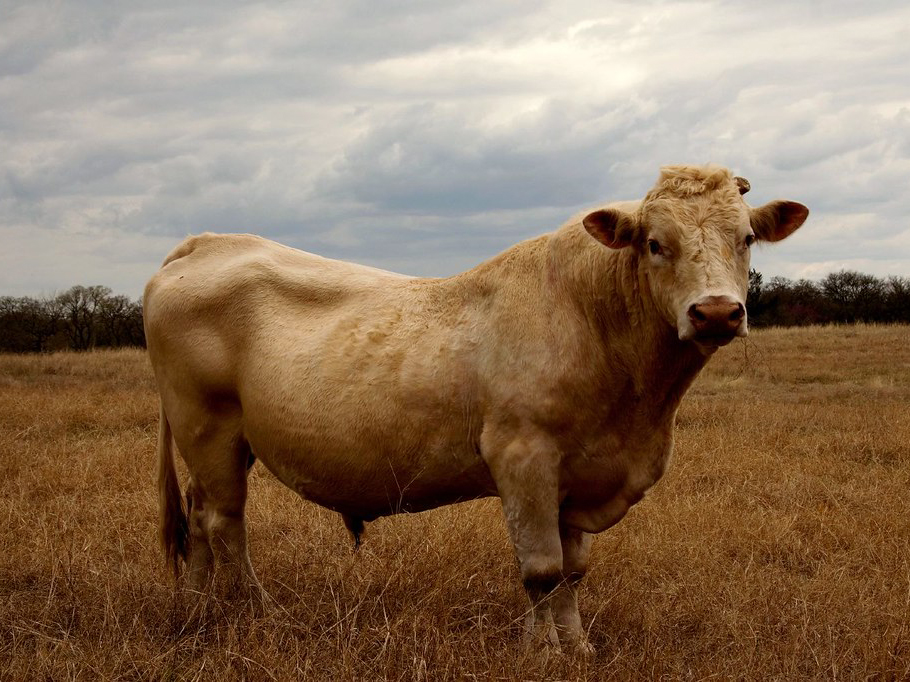A Sound Season: What To Know About Bull Breeding And The BSE
Cattle owners who are looking to expand their herd should consider a Breeding Soundness Examination (BSE), a quick and routine evaluation of a bull’s reproductive abilities done by a veterinarian prior to the breeding season.

A vital tool in supporting our nation’s food supply, this examination facilitates a bull’s ability to breed more effectively and safely and, for owners, in an economical and healthy manner.
Dr. Benjamin Newcomer, a clinical associate professor with the Texas A&M College of Veterinary Medicine & Biomedical Sciences’ (CVMBS) Veterinary Education, Research, & Outreach (VERO) program, says that a BSE evaluates and screens for bulls with fertility or physical issues that will reduce the number of cows bred in a season.
“Bulls that pass a BSE are expected to be able to successfully breed a full complement of cows or heifers,” Newcomer said.
A BSE consists of a physical exam and an assessment of semen quality. The physical exam is an overall evaluation of bull health, including an examination of the eyes, feet and legs, and assessment of body condition score. Semen quality is assessed for motility (ability to move) and morphology (correct structure), with minimum standards established in order to pass the BSE.
Breeding bulls should be examined for breeding soundness at least annually, preferably a few months before the start of their breeding season. This timeline allows for the problems of any bulls who don’t pass the BSE to be addressed or for the breeder to acquire new bulls before the breeding season begins.
“Failure of the BSE does not necessarily mean that a bull is unable to impregnate a cow. Rather than just identifying bulls that are infertile, a BSE helps identify bulls that are subfertile,” Newcomer said. “Subfertile bulls will not be able to cover as many cows as expected, and conception/pregnancy rates will be lower than expected and desired. “
In addition to receiving a standard BSE prior to breeding, Newcomer says owners should have their bulls tested for bovine trichomoniasis, commonly known as trich, a venereal disease reportable in Texas.
“Bulls infected with trich do not show clinical symptoms but are able to spread the disease to cattle, which results in infertility and early embryonic death,” Newcomer said. “Although not always included with a standard BSE, a trich test is strongly encouraged and is required by the State of Texas for any bull offered for sale, lease, exchange, or otherwise change of possession, with the exception of certified virgin bulls less than 24 months of age.”
Breeding bulls are a considerable investment, both financially and timewise. BSEs are an important tool to helping owners make the most of each breeding season.
Pet Talk is a service of the College of Veterinary Medicine & Biomedical Sciences, Texas A&M University. Stories can be viewed on the web at vetmed.tamu.edu/news/pet-talk. Suggestions for future topics may be directed to editor@cvm.tamu.edu.


